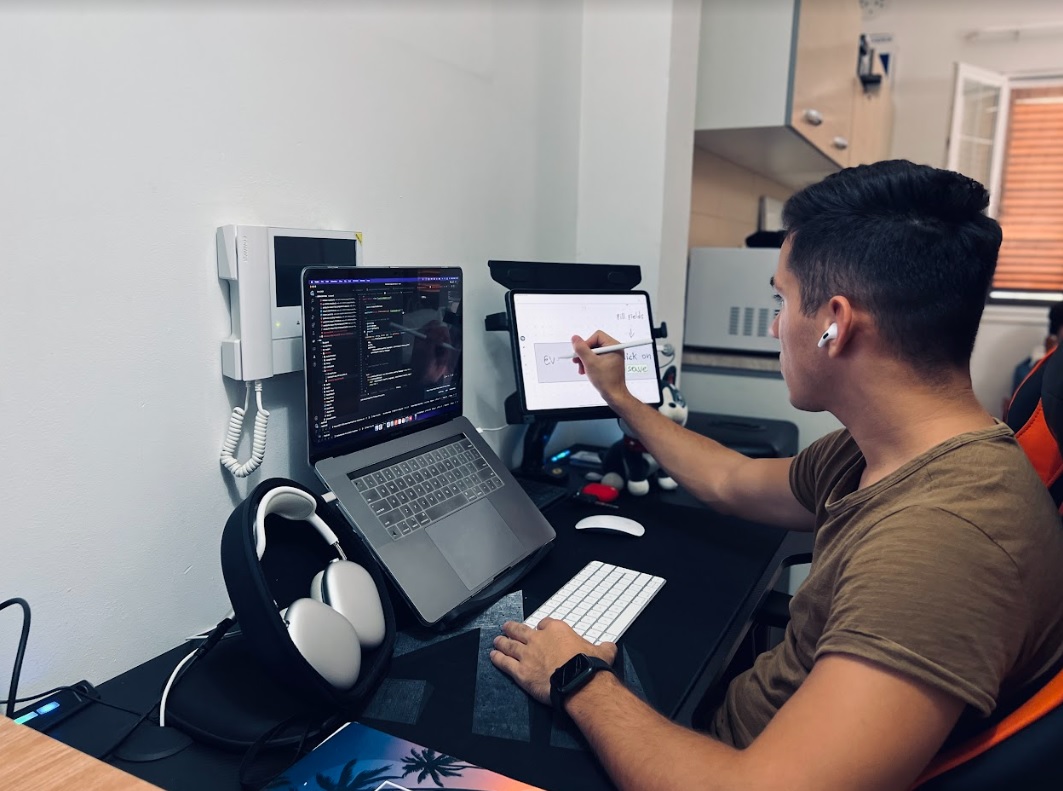Forgetting to create and promote a useful company culture that’s specifically designed to address the challenges of remote work is one of the most common mistakes that companies or startups make when a team of remote developers.
In most cases, the project leaders completely let this part fall by the wayside or assume that in-person work culture will automatically translate to remote work culture. This almost always results in a bad company culture, or a culture where mistakes and negative attitudes prevail when they could’ve been prevented by establishing and clearly communicating an appropriate work philosophy from the start.
What is company culture, and why does it matter?
The best way to understand company culture is to imagine it as a north star: it’s a set of shared values, attitudes, and beliefs that help people make decisions that are aligned with the company’s goals and objectives in ordinary and extraordinary situations.
Given that you can’t give people an infinite manual that covers each and every possibility, sometimes team members will have to use their critical thinking skills. They’ll have to think beyond the work or technical issues and factor in how they relate to their coworkers, how they impact the company image, and how their work drives social responsibility.
Having a well-defined company culture will help you attract and hire adaptable talent and make sure that said talent is happy with what the company expects from them. It also helps increase job satisfaction, synergy, and trust in other team members.
Is there a difference between the right company culture for in-person teams and remote teams?
There absolutely is. In-person company culture tends to be based on limits and codes of conduct in order to prevent interpersonal conflict and promote harmonious teamwork. While remote work company culture doesn’t necessarily have these elements, it’s geared by design toward building and prioritizing relationships built on trust and decisions that positively impact workflows and increasing productivity.
For example, there’s no real opportunity for water cooler chit chat with a 100% remote developer team. This small talk can create bonds and breed affinity and empathy, and it can also be a way to determine how the work is going. An in-person work environment can also lead to a lot more distractions than an individual’s home office.
This disconnect can lead to serious miscommunications or cause an entire project to be delayed because one person turns in something late. All of these things are exactly what you’d want to prevent with your company culture efforts.
How should your remote developer team view the company culture?
Every company, project, and startup is different. So the specifics of your company culture will be different depending on what you’re working on or who you’re managing, but there are a few common must-haves for any remote team:
- Everyone is aligned with the team’s goals, the product objectives, and the client expectations.
- Technical and interpersonal issues are dealt with as soon as they arise, before they get worse.
- Everyone knows how and when to address a question or difficulty. In other words, everyone knows when to ask a colleague something or when to bring the issue to a supervisor.
- Supporting team results are the priority instead of extolling individual performance.
- Feedback between leaders and subordinates is specific, respectful, bidirectional, and useful.
- Everyone feels comfortable pointing out room for opportunity and recommending improvements.
- Communication is friendly and inclusive: nobody uses expressions or language that could be interpreted as disrespectful or discriminating towards anyone.
- Nobody is expected to sacrifice their wellbeing for work; wellbeing is non-negotiable.
- Everyone strives to maintain a good work environment and facilitate everyone else’s work. They don’t expect the leader to take care of everything.
- Misinterpretations and miscommunications are avoided by making sure that everyone is using the appropriate message tone and communication channel for the situation. For example, negative feedback isn’t sent over text.
- Everyone understands the importance of good practices instead of viewing them as an arbitrary requirement. An example of this is spending a few seconds updating the shared task dashboard.
- The goal is to work more efficiently, not harder.
- More experienced contributors offer responsible and active mentorship to newcomers.
- There are no unwritten rules: all communication is transparent.
How can I create and strengthen the company culture that my dev team needs?
At first glance, the list above might seem intimidating and hard to achieve. Luckily, with a few good practices that are applicable to talent recruitment, onboarding, retention, exits, or growth, these positive attitudes can be cultivated with relatively little effort.
Below are a few particularly relevant ideas to keep in mind when you’re building or managing a team of remote developers:
1.- Give your company culture a good voice
Behind every company culture is corporate communication. Imagine if the language of this communication were something that your devs could really identify with or something that would motivate them to continue an interesting conversation. Does your internal communication sound like it’s written by an uptight executive in a suit or a creative digital nomad who’s working on a beach and who knows all of your team’s favorite pop culture references?
In a nutshell, it’s a lot easier for your team to adopt the right company culture if they see that it’s working for the spokesperson.
2.- Instead of “values, mission and vision,” use storytelling or a statement
With all the ways to communicate what really matters, it’s shocking that companies still use the tired mission, vision, and values statements on their websites and corporate briefs.
Be original and anchor your remote company culture by using (brief!) and concise storytelling that sparks enthusiasm and a sense of belonging within the company.
You can also work on a call to action. For example: at Workana, we believe in the importance of creating the perfect match between an employer and talent because it benefits everyone.
3.- Prioritize soft skills
According to organizations like the World Labor Organization and the International Labor Organization, the advent of remote work and the work environment changes brought on by technology, soft skills like communication, critical thinking, teamwork, and self-management have become the keys to success for ensuring project continuity.
Attracting talent with these soft skills is the first step. The next step is motivating your devs to keep sharpening these skills on a regular basis whether that’s by taking courses, using team dynamics, workshops, or sharing content that they’ll find useful both in their professional and personal lives.
4.- Integrate the lifestyle that your devs want into your company culture
Get to know your devs, make sure you identify the common threads in the lifestyles they want to have, and use the company culture as a pretext that helps them achieve those goals.
For example, at Workana, we’re committed to good practices not only because it allows us to guarantee our clients a higher level of satisfaction, but also because those good practices give our team members more time to do what they love.
5.- Create spaces dedicated to socializing, having fun, and promoting the team’s wellbeing
When you do this, make sure that it doesn’t feel obligatory or like it’s just another team building exercise that everyone has to do on Friday before the weekend starts. Here are a few ideas:
- A meme contest
- A hackathon
- A support group
- Online yoga classes
- Video Game tournaments
- A leaderboard lunch contest where people get to vote on their favorite team member’s lunch (with recipes included of course)
- Meetings that start with tips for saving on household items
The sky’s the limit. Pay attention to your team’s morale and provide a fun opportunity for members to bond with each other both in and outside of the (virtual) office.
6.- Create a collaborative content strategy
Buffer’s Open blog gives the company’s remote workers a place to share their expertise and discuss complex remote work topics in a 100% transparent and human way.
While all the blog posts are guided by the company culture values, they provide a way for the entire company to see how other colleagues are putting those values into practice on a day to day basis.
Remember, the best company culture starts with choosing the right fit. You can do this by finding the ideal devs for your dream team. At Workana, we guarantee that you’ll find the qualified professionals that you’re looking for. We also offer an exclusive seven-day risk-free trial so you can see if someone is a good fit with your work philosophy.
You may also be interested in:









